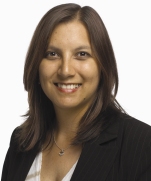- Home
- About Us
- The Team / Contact Us
- Books and Resources
- Privacy Policy
- Nonprofit Employer of Choice Award

 As we go about our daily lives as fundraisers and gift planners, we all know what a boon it can be to have experts sharing their experiences and helping us to look out for pitfalls that could slow us down or trip us up. What could be better than a friendly voice offering sound guidance? For this reason, I decided to ask 5 experienced fundraising professionals to share their best advice; from how to get started if you are in a small shop, to how to become a better gift planner. You may be surprised at what they had to say.
As we go about our daily lives as fundraisers and gift planners, we all know what a boon it can be to have experts sharing their experiences and helping us to look out for pitfalls that could slow us down or trip us up. What could be better than a friendly voice offering sound guidance? For this reason, I decided to ask 5 experienced fundraising professionals to share their best advice; from how to get started if you are in a small shop, to how to become a better gift planner. You may be surprised at what they had to say.
Be not afraid! Getting started in gift planning doesn’t need to be scary
Walking the talk!
Jill Nelson, CFRE Associate Vice President, Estate Giving, The Princess Margaret Cancer Foundation
One of the simplest ways to become a better gift planner is something you should do anyway: get your own affairs in order. We all know our estate plans should be updated every five years, or after a significant “life event.” But how many of us walk the talk? How many of us are guilty of describing the Will writing process as “simple” and “inexpensive,” not really knowing what the current market price for a Will and Powers of Attorney document actually is?
As for simple: well, writing a Will is emotional! It can dredge up complicated life history, happy and sad. It can remind you of how full your life is, and what you regret. It forces you to look in black and white at what you are “worth” – hopefully reminding you that your value is not tied to worldly goods, but possibly making you take stock of lost opportunities. It can emphasize loneliness and isolation in someone who struggles to think of who they can trust to name as executor.
But it will also force you to think of what you’re grateful for, and experience the relief and satisfaction that attends the signing of the Will at last. Having your Will written and executed will make you a more empathetic and insightful gift planner. It’s an experiential education that none of us can afford to do without.
“Coulda, woulda, shoulda” - Small shop planned giving
Ligia Peña, M.Sc., CFRE Global Legacy Manager, Greenpeace International
As a former small shop fundraiser, I always struggled to schedule time to work on our planned giving program while at the same time getting the annual appeal out, coordinating the annual golf tournament and race, researching major donors, etc. You get the point!
Now that I have moved to a large NGO, I find myself reflecting on the “coulda, woulda, shoulda” of my time in small shops. So here are some tips for you small shop fundraisers (which could also be applicable to large shops):
Being vision-focused to reach a younger audience
Annette Paul, CFRE President, Association of Fundraising Professionals, South-Eastern Ontario Chapter
As fundraisers, we use a range of cultivation tools and fundraising vehicles, such as events and annual giving, to engage younger generations (age 25-40). There is no reason why you can’t use these opportunities to raise awareness about planned giving too. It just depends on how we communicate about it!
With annual giving for example, while sharing information about current programs, try including a discussion about your longer-term vision of the organization. This will plant the seed about the needs of your organization in the distant future. Or, you could explore opportunities to have an annual event that focuses on the purpose of a planned gift, with a talk by a financial advisor about the “how-to details.”
In doing this, there are several factors to think about with regard to your donor:
Looking for more advice?
Reach out to the Canadian Association of Gift Planners, or to your local chapter of the Association of Fundraising Professionals. From providing training sessions to mentorship, you can connect with a community of experts and seasoned professionals to give you even more great tips to lead you to greater success!
Mena Gainpaulsingh is a fundraising professional with more than 17 years of experience in the sector. As Director of the International Fundraising Consultancy, she has worked with many organizations, including WaterAid Canada, Starlight Children’s Foundation and Virgin Unite. She currently sits on the Boards of the Rideau Valley Wildlife Sanctuary and the Association of Fundraising Professionals, Ottawa Chapter. For AFP she chairs Fundraising Day, an annual conference dedicated to the professional development of fundraisers in the region.